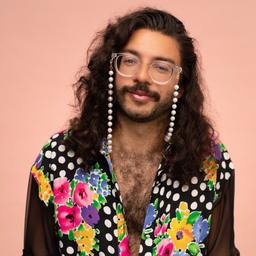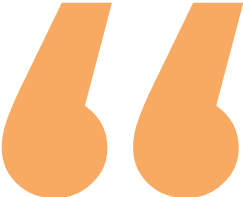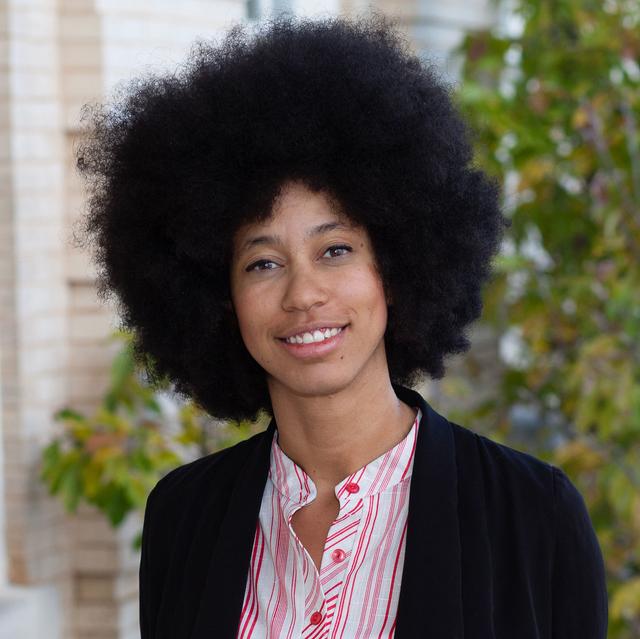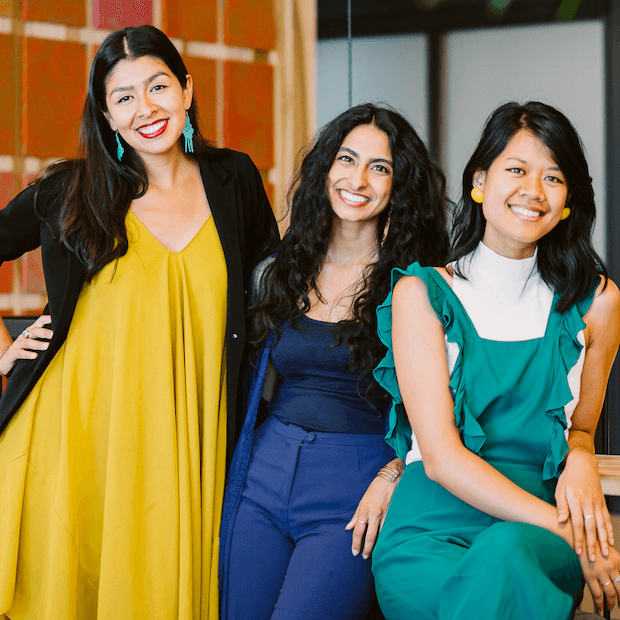Alex Locust is a Black biracial, queer, disability justice educator, activist, and "Glamputee" who celebrates the harmony of his identities to help create the world they want to see.
Born disabled (above-the knee-amputee), Alex learned to navigate an ableist world that told him and other disabled people harmful, violent, and reductive ideas around which bodies are worthy and which bodies are beautiful. Armed with bombastic charm, whimsical humor, and a sharp wit, Alex synthesizes his lived experience with professional insight to educate others on how to adopt a disability justice framework that builds community and empowers fellow disabled folks.
Alex offers a series of workshops and lectures that foster empathy and are grounded in cultural humility and intersectionality. He creates spaces that model comfort and ease while exploring complex topics such as disability justice, microaggressions, harm reduction, and cross-movement solidarity.
With an M.S. in Clinical Rehabilitation and Mental Health Counseling, his approach highlights those who have been silenced and invisibilized while also activating those with privilege and power to recognize how to disrupt oppression and promote cultural shifts. Alex creates an environment that is both engaging and comfortable, adapting to the audience so they leave with newfound knowledge and awareness.
While earning his Masters of Science degree, Alex was honored with the Peggy H. Smith Distinguished Graduate Student award and named Graduate Student of the Year from the National Council on Rehabilitation Education.
Spill the Disabili-Tea: An Interactive Dive into Disability Justice
Let’s get real about disability justice. This hands-on, discussion-driven workshop unpacks key concepts around disability, access, and inclusion—with space to explore and ask questions. Alex leads participants through questions like: What is disability justice, really? Who is “disabled”? How do we unlearn ableism? This session invites honesty, reflection, and practical action for anyone looking to build more affirming communities.
Making Access Real: Disability Justice for Institutions Ready to Evolve
Perfect for campuses, organizations, and workplaces, this foundational talk introduces disability justice as a culture-shifting practice—not a checklist. Alex Locust brings heart, humor, and critical insight to explore how ableism shows up in our structures, assumptions, and everyday interactions. Grounded in storytelling and strategy, this session offers real tools for shifting from performative inclusion to community-rooted accessibility, collective care, and deep culture change.
Everyday Bias: Understanding and Interrupting Microaggressions
Microaggressions may be subtle, but their impact is lasting. In this dynamic, two-part session (available together or as a standalone), Alex explores how bias shows up in daily interactions—and how we can interrupt it. Part 1 introduces the foundations of microaggressions and intersectionality through real-life examples. Part 2 offers hands-on tools for microinterventions—everyday ways to disrupt harm, call in with care, and build more accountable communities.
Beauty, Shame, and Belonging: Reimagining How We See Ourselves
In a world saturated with narrow standards of beauty and worth, what does it mean to see yourself—and others—with care? In this vulnerable and illuminating talk, Alex Locust explores how ableism, racism, fatphobia, and queerphobia shape how we move through the world and how we’re taught to view ourselves.
Drawing from personal story, cultural analysis, and community wisdom, Alex invites participants to challenge internalized shame, reclaim pleasure and visibility, and imagine new relationships to self-image and embodiment. This session is an invitation to shift from self-surveillance to self-celebration and to build cultures where everyone feels seen and valued.
Crip and Queer Survival: Community-Based Strategies for Student Success
Designed for campuses, this session explores how queer, disabled, and BIPOC students are navigating higher education through community-driven care. Alex shares approaches like mutual aid, peer mentorship, and collective resourcing as survival strategies and institutional critiques. With a focus on food security, mental health, and campus safety, this session supports educators and staff in making campus life more accessible, affirming, and humane.







